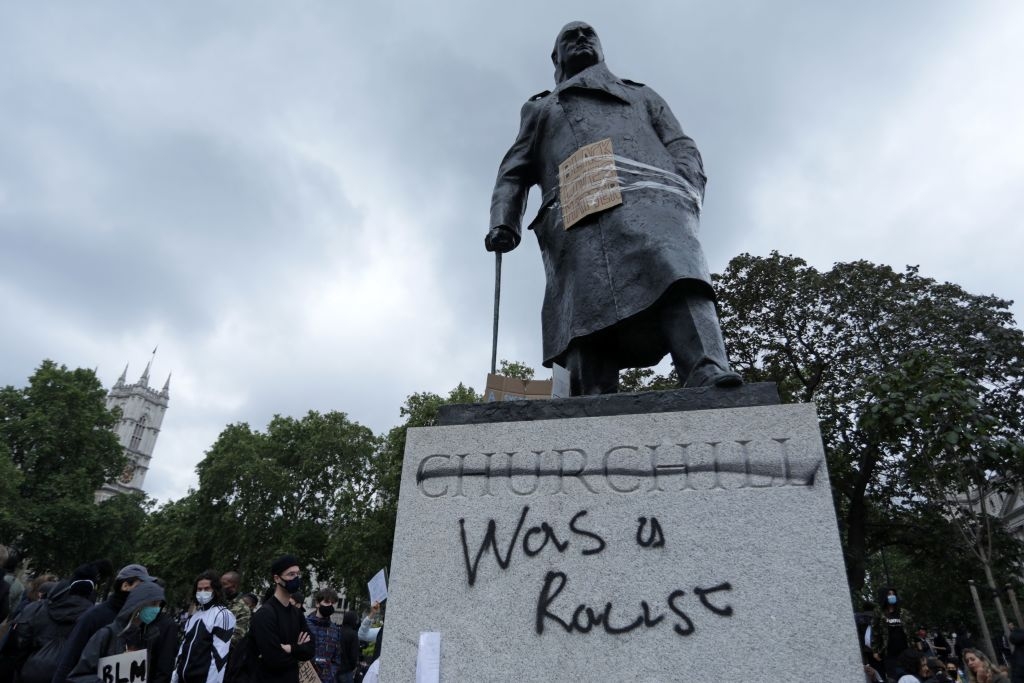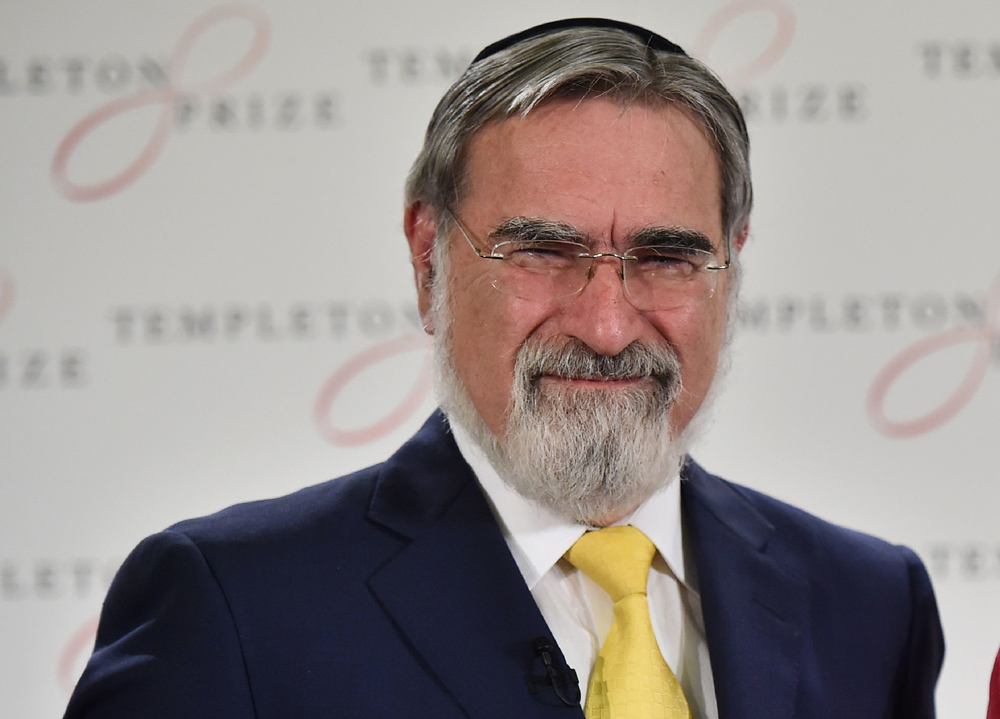In this mailing: - Andrew Ash: Britain: Two-Stepping Toward Totalitarianism
- Rabbi Lord Jonathan Sacks
- Amir Taheri: The US Elections: An Episode in a Cultural War
by Andrew Ash • November 15, 2020 at 5:00 am It has become an almost daily occurrence to find news stories of parents being 'called out' by their newly politicised children for expressing on social media 'wrong', 'unwoke' views, or of people being fired for something they may or may not have said years ago. This sense of entitlement has come to characterise a group whose younger demographic seem to have no comprehension of the horrors of a war -- or indeed, of many authentic hardships -- in their own relatively comfortable lives. This lack of respect for, or understanding of, history, along with an apparent need to invent, import, or re-animate grievances from the past, then lead these protestors to advocate inflicting what they decide is the appropriate revenge for a grievance on people who have had no part in causing it. Tolerance is to be expected only from others.... One man's freedom, it seems, has become another man's cause for resentment. The protestors' dismissal of British heritage, a bid to 'cancel' history, appears a threat to the nation. We supposedly have nothing to be proud of. Our achievements have presumably been little more than the spoils of an evil, bigoted patriarchal system. These malcontents, by pledging allegiance to the Marxist architects of that narrative, not only insult the memory of those who have fought and died for the freedoms we now take for granted; they are also two-stepping towards totalitarianism.
 When the statue of Winston Churchill in London's Trafalgar Square was vandalised, the police, evidently held hostage to political correctness, stood by and watched as their role was publicly undermined by open disregard for the law. (Photo by Isabel Infantes/AFP via Getty Images) There was a time when the British were known for their stoicism, their ability to battle through hardship, no matter the odds. The so called 'blitz spirit' of eighty years ago, that saw the nation 'pull together and carry on', regardless of the Nazi bombardment of our cities, characterised a generation that had suffered two world wars yet could not be bowed. During the Covid pandemic, however, this 'blitz spirit' has been noticeably absent. There has been certainly very little in the way of a nation pulling together; in its place, there has been just a lot of bickering, mud-slinging and name calling-among politicians, activists, and the increasingly fragmented populace. Continue Reading Article November 15, 2020 at 4:30 am  (Photo by Ben Stansall/AFP via Getty Images) All of us at Gatestone Institute mourn the untimely passing of Rabbi Lord Jonathan Sacks. He was an intellectual and spiritual giant of our generation and beyond. His reach was global and his message was for all faiths. He believed passionately in the Dignity of Difference and was the moral voice of our time. Gatestone was immensely privileged to have hosted Rabbi Lord Sacks recently at its Zoom event on September 17th of this year. We did not know then that this would be his final speaking event anywhere. In tribute to his memory we invite you to listen here to his inspiring and meaningful last interview on his recently published book "Morality". His passing is an immeasurable loss. We will all miss his knowledge, his insight, and his deeply held belief that together we could all strive, in his words "to heal a fractured world". May his memory be a blessing. by Amir Taheri • November 15, 2020 at 4:00 am Now, however, that narrative is challenged by a good segment of the American elite, especially in academia and media, in favor of a new narrative that replaces heroism with victimhood. In that narrative you must show that you or your ancestors have somehow suffered, granting you the status of a victim deserving empathy, apology and compensation from "the system." With the confederacy of minorities in mind, he [Biden] promised to protect and advance community rights, while forgetting that human rights, as spelled out in the Bill of Rights and the Universal Declaration of Human Rights, also largely an American product, are individual not collective rights. For more than a century, America offered the world a different socio-politico-economic model, implicitly trying to make others like itself.... The classical American model remains the most attractive around the world. The irony, however, is that the model in question is being challenged inside the US itself. Rather than wanting to make others like the US, a growing segment of US establishment wants to make the US like others, notably European social democratic models.
 Pictured: Voters fill in ballots at the CenturyLink Field Event Center in Seattle, Washington on November 3, 2020. (Photo by Jason Redmond/AFP via Getty Images) Although we don't yet know the denouement of last week's election in the United States, one thing is already clear: this was an exceptional event in America's more than 200-year-old democracy. To start with, this was the first time that the election was not fought within the rules of the traditional two-party system. The Republican Party offered no manifesto or program, allowing the exercise to become a duel between President Donald J Trump and his opponents. That, in turn, gave the election a personal aspect never seen before. The Democratic Party did offer a program, but mostly to furnish the vacuum -- a program half of which canceled the other half. The party's presidential candidate, Joe Biden, claimed he had a secret plan to deal with the Covid-19 pandemic but mostly campaigned as anti-Trump and attracted support from diverse sectors largely on that basis. Continue Reading Article |
|
|
No comments:
Post a Comment